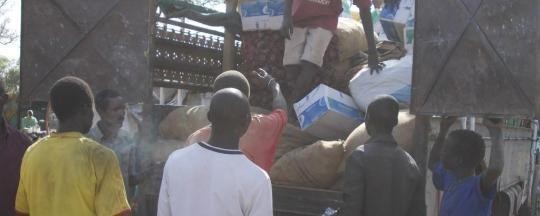The prices of consumer goods in Abyei has increased owing to the mass return of people to the area to participate in the voting.
Consumers in the most populated areas of Abyei and Agok raised concern over the increase of prices of goods. Speaking to Radio Tamazuj at Agok market, a buyer named Nyariak Kuol said she had difficulty finding some goods in the market and prices were very high during the recent rainy season.
Besides increased demand, the market is also affected by supply problems caused by the poor condition of roads in South Sudan as well as the instability of relations with the Misseriya tribe, which inhabits the area along the key roads to the north.
A trader called Monyluak said he believed prices of goods definitely will start dropping after the referendum. He said he had raised prices because of the poor condition of roads from Juba to Agok, a journey which he claimed took “20 days.”
Monyluak had been charging 410 South Sudanese pounds for a bag of sugar, but raised the price to 440 SSP, while rice of 25 kg was 130 SSP and rose to 140 SSP, and a water bottle now costs 3 SSP.
Sudanese trader Abdul Rahman Gatdier said he sells a bag of sugar for 340 SSP when previously it was 310, oil goes for 200 when it used to be 180, and a carton of water went from 40 to 50 SSP.
The trader said the demand for the goods had increased and also the supply from Juba was difficult. “Prices increase when there are no trucks coming here to Agok with goods but after one to two trucks arrive prices start to drop,” he stated.
Traders union chairman Chol Deng Chol said in Abyei on Tuesday that the prices are increasing due to bad road and the growing population that returned to participate in the referendum.
“After the death of Sultan Kuol we lost connection with the Misseriya and we are going to be far from them,” Chol said.
File photo: Goods are unloaded from a truck in Yida, Unity State (Radio Tamazuj)




